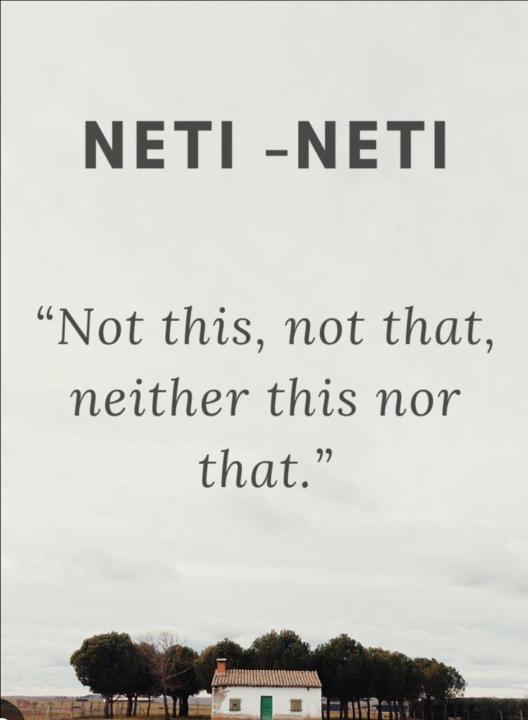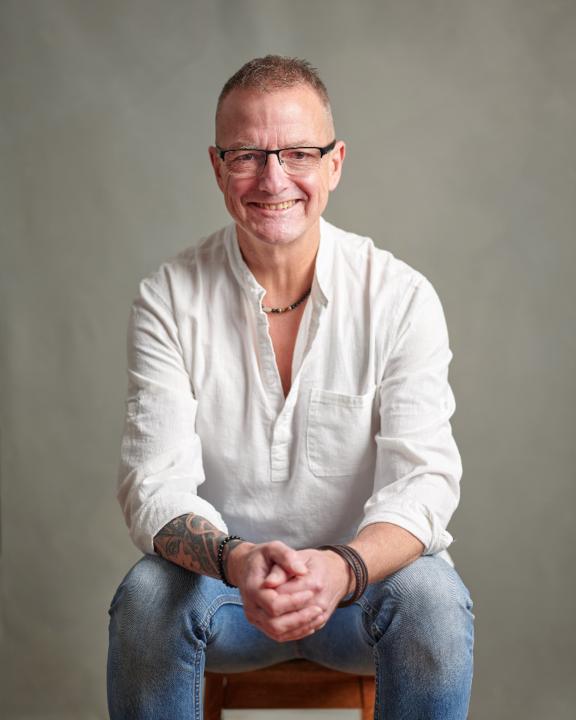Activity
Mon
Wed
Fri
Sun
Nov
Dec
Jan
Feb
Mar
Apr
May
Jun
Jul
Aug
Sep
What is this?
Less
More
Memberships
Shangriballa - Non Dual Group
76 members • Free
11 contributions to Shangriballa - Non Dual Group
Non-Duality: From the Mountaintop to Your Laptop
Isn't it funny how some concepts, which once felt so far away, are now popping up everywhere? It's as if non-duality is having its moment, suddenly appearing in podcasts, on social media, and in various spiritual circles. We've got to wonder what it even means to us, here and now, in the middle of our chaotic, modern lives. Non-duality, a simple idea with a big history, literally means "not two." It's the understanding that there's no fundamental separation between you and everything else, between the observer and the observed, or between the self and the universe. A hundred years ago, this concept was mostly reserved for mystics and monks in remote monasteries. It was something you dedicated your entire life to, often giving up worldly possessions and human connections to pursue. The non-duality of a century past was often about escaping the material world to find a deeper, singular truth. But today, the conversation is different. It's more about how to live this truth right here, in the messy, dualistic world we inhabit. We aren't all moving to a mountaintop. We're trying to figure out how to be "not two" while paying bills, raising kids, and navigating social media. This is where the struggle comes in. It's easy to read a book or listen to a talk and feel a glimmer of non-duality, but putting it into practice is a different matter. That's a whole other story. Here are some challenges: - The "I" is Sticky: We've spent our entire lives building up this identity, this "I," with all its stories, preferences, and fears. Suddenly being told it's not real, that it's just a concept, can feel disorienting and even threatening. How do you go to work and get things done if there's no "doer"? - Emotions vs. Detachment: Non-dual teachings can sometimes be misinterpreted as being emotionless or apathetic. People worry that if they don't experience anger or sadness about things, they won't be able to stand up for themselves or others. Non-duality isn't about getting rid of emotions; it's about seeing them for what they are, just passing sensations, without letting them run the show.
3 likes • 30d
Hey Lisa. I relate to all of what you say. For me, I think the biggest challenge is that I sometimes find myself thinking, "Yes, I get it, I am Brahman. I am one with everything. That's nice. But so what?"!!! I think that's the real challenge - how do I live my life with this understanding and what difference does it make? So other people might not be separate from me in the metaphysical sense, but some of them think and behave in ways that range from misguided to incredibly destructive. Just being honest - there are some people in this world that I don't feel the slightest compassion for, such as people who murder children. This is the most troubling part of the realization of non-duality for me. That being said, I have found great benefits from my journey - more equanimity, less fear of death, more appreciation of the beauty of nature and people and greater inner strength, for example. Namaste! 🙏
Lucid Dreaming
Very occasionally, I have lucid dreams. I had one a couple of days ago (don't worry, I'm not going to bore you with lots of details 😉). It started in a busy bar, where I ordered a drink and just sat, listening to the conversations around me. The content isn't important, but what amazed me, being fully conscious and aware, was that it was identical to waking reality. Not similar, completely identical. It made me realise that our instinctive suspicion of the concept of Maya is unfounded - there is nothing about reality that can't be a dream. Anyway, I've bought a book about lucid dreaming because it's something I would like to do more. I would be interested in hearing if anyone else has had similar experiences. Peace. 🙏
1 like • Aug 20
@Michael Simpson I've had lucid dreams before this one, but they have always been more fantastical and dreamlike. The one I had the other night had two phases - one hyper-real and then it got a bit crazy (and fun!). Most of my 5 MEO trips have had a gentle transition, but I must admit I was unsettled coming out of one on the retreat I did last year. I felt I had been in what I can only describe as a waiting room receiving some sort of download, and coming out of it after what felt like an eternity was jarring. All of this has made me think a lot about what reality is, and I think that's a good thing! Namaste!
Exploring 5-MeO-DMT as a pharmacological model for deconstructed consciousness
Exploring 5-MeO-DMT as a pharmacological model for deconstructed consciousness
2 likes • Aug 13
Thanks for posting this Lisa - it's a very interesting paper. It's a very challenging area of research, as we all know how hard it is to describe the experience! The authors said this: "A higher prevalence of this state among participants with larger doses indicates that the state may be dose-dependent, though amnesic effects may be similarly dose-dependent, and a dosing ‘sweet spot’ between the two may exist." That has been my experience - my last experience felt like it was exactly in the sweet spot where I could (kind of) recall what happened but was fully immersed in Ananda, which is probably what they describe as 'oceanic boundlessness'.
Free Will: A Non-Dual Perspective
This deep and often challenging topic gets to the heart of spiritual understanding. The post you provided offers a great starting point, using the insights of Sri Ramana Maharshi and Albert Einstein to question our conventional understanding of free will. Let's elaborate on this from a non-dual perspective, exploring why this view can be profoundly liberating, far from being a source of despair. The Conventional View vs. The Non-Dual View Most of us operate under the assumption that we are a separate "self" or ego, a conscious agent who makes choices and directs actions. We believe we have a "free will" that allows us to choose between options, and that we are the authors of our lives. This view, while deeply ingrained, is the source of much of our suffering. When things go well, we take credit, fueling our ego. When they go wrong, we blame ourselves or others, leading to guilt, shame, and resentment. The non-dual view, however, challenges this fundamental assumption. Non-duality, or Advaita Vedanta, points to the ultimate reality of a single, indivisible consciousness. From this perspective, there is no separate "me" to have free will. The sense of being a separate agent, the one who chooses, is an illusion. Sri Ramana and the Investigation of "I" Sri Ramana's statement, "Everything is predetermined," isn't meant to be a fatalistic decree. It's a pointer to a more profound truth that can only be realised through self-inquiry. When asked about free will, he often redirected the questioner to investigate the one asking. "Who is it that has free will?" he would ask. By investigating the source of the "I" thought, one realises that this separate "I" is a construct, a thought-form, not a solid, independent entity. If there is no separate "I," then who is there to have free will? Actions happen, thoughts arise, and the body-mind complex functions, but no separate entity directs the show. The sense of authorship, of being the one who "wills" an action, is seen as a kind of cosmic misattribution.
Poll
4 members have voted

2 likes • Aug 9
I have spent way too much time pondering this question ever since I read Sam Harris' book on free will, probably 10 years ago now. I think the confusion arises from the imprecision of the term 'free will'. As you rightly point out, it leaves open the question as to who it is that has the choice. From the non-dual perspective, 'I' am the infinite awareness, not the doer. As Swami Sarvapriyananda puts it, you are not the Uber and not even the Uber driver but the passenger! That being said, as I type this, another 'I' is wondering whether to have a cup of coffee before or after I take the dogs for a walk. That 'I' does have a choice to make, and he will make it before long. From that perspective, in this world of time, space and causality, that 'I' does have the ability to make choices, and you could call that 'free will'. Now Harris would argue that even that choice is not made freely because it is determined by all my prior experiences. Personally, I reject that position. Yes, all my prior experiences play a part, but to suggest that if my life had been slightly different I would or would not have a coffee now seems to me to be slightly preposterous. There is an element of deliberation, of weighing up the pros and cons in even this trivial choice, and that seems to me to be an intellectual process, not an unconscious one. All that being said, I do believe that if we let go of trying to control our lives, we will be much happier. It's a dance - we need goals and motivation, but we also need to accept that life has a way of unfolding in ways we could never predict or control. If we surrender to the Tao and understand that we will have all the same strengths and powers that we have now when we meet the challenges of life, that feels very liberating to me. Shanti! 🙏
Neti Neti, Not this, Not that
The practice of Neti, Neti isn't about rejecting the world or denying your experience. Instead, it's a profound exploration of what you truly are by gently letting go of what you are not. It’s an ancient yet entirely modern approach to self-discovery, deeply rooted in the Advaita Vedanta tradition. Think of it not as a process of adding something new to yourself, but rather as shedding layers of misunderstanding. We often define ourselves by our bodies, our thoughts, our emotions, our roles in life. But Neti, Neti—meaning "not this, not that"—invites you to question these identifications. It's not about becoming an intellectual skeptic or embracing nihilism; it’s about using discernment to see through the illusions that obscure your true nature. The sages of the Bṛhadāraṇyaka Upaniṣad understood this deeply, proclaiming, "Neti, neti—It is not this, it is not that. It is ungraspable, for it is not grasped; indestructible, for it is not destroyed…" This isn't a dismissal of reality; it's a recognition that the ultimate Self cannot be captured by language or concept. Language defines by setting boundaries, but the Self is prior to all distinctions, beyond all duality. So, Neti, Neti isn't a denial of your existence, but a clearing away of all that limits your understanding of it. It’s about releasing every idea the mind clings to as "me," until what remains is not an object you can grasp, but pure, self-illuminating Awareness. The logic is beautifully simple: Anything you can perceive, anything that comes and goes, cannot be what you fundamentally are. Your thoughts arise and dissolve. Your emotions shift like clouds. Your body changes and ages. Even the sense of "I" as a separate ego—the doer, the thinker, the one who suffers—is something that appears within your Awareness and vanishes in deep sleep. What then, is the unchanging constant that observes all these fleeting phenomena? This is precisely where Neti, Neti points: not towards an empty void, but towards the only "no-thing" that is eternally present—pure Being. Your true Self isn't found through accumulation or self-improvement; it's revealed through the process of removal. As Adi Shankaracharya so succinctly put it, "Brahman is known when the ego is destroyed." This isn't a poetic fancy; it's a precise spiritual instruction. The ego isn't a solid entity; it’s a mistaken identification with temporary forms. When your attention stops clinging to name, form, personal history, or societal roles, what remains is the formless witness, untouched by the flux of becoming.

1-10 of 11
Active 3d ago
Joined Jun 8, 2025
Powered by


